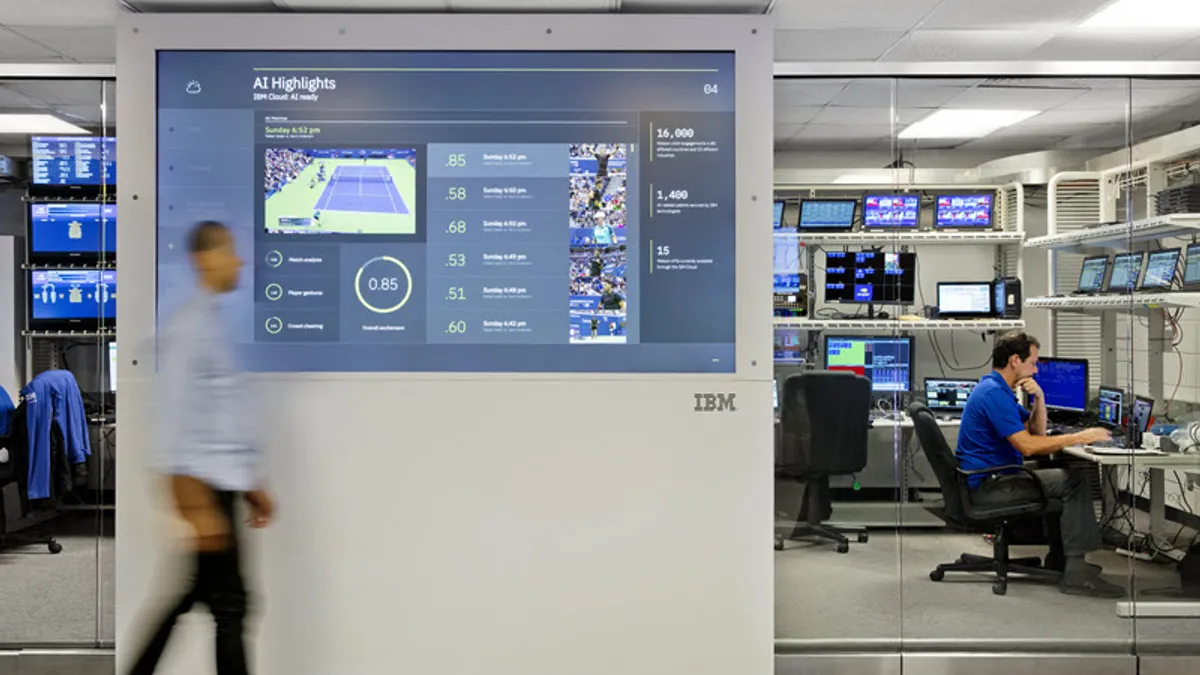ORLANDO, Fla. — Ubiquity of artificial intelligence tools in the workplace hinges on employee adoption. How often, or little, they're used by employees to increase their efficiency and improve customer satisfaction.
For IBM, the only way to make AI a core part of the workflow across entire companies is to take a cue from a decades-old office staple: email.
It's dangerous to think of AI as a magic tool, said Daniel Hernandez, VP of data and AI at IBM, speaking at the Gartner IT Symposium/Xpo in Orlando, Florida last week. Instead, it should be seen as a strategy to empower staffers, helping them make more effective decisions through data while boosting employee experience.
"Email gets no respect because it's boring," said Hernandez. "Despite the full ubiquity of it, its central power, no one wants to give any sort of love. This is the place we need to take AI."
According to Hernandez, vendors need to "make AI as boring as email," in order to ensure people apply it to their everyday work, removing tedium from it so focus can shift back to the work and people who matter.
"Humans will take on new responsibilities, such as checking in on their assistants and ensuring they are performing optimally."

Traci Gusher
Partner, US, AI, Analytics and Engineering Lead at KPMG
AI adoption stands to deeply impact the workplace in the coming years, per Gartner projections. The trend will expand the size of the talent pool companies can tap into, while augmenting workers' capacity and determining which companies win over their markets.
The key to making AI boring, Hernandez said, is to make the technology easy enough for people to build and incorporate into their daily workflow, though he admits that's easier said than done.
IBM points to one example in the legal industry to help explain that point. At LegalMation, makers of AI tools for law firms, Big Blue's Watson works to automate clerical work. The technology can stay one step ahead of attorneys, producing draft litigation documents.
Attorney's written discovery process on cases, a task that could take eight hours, can be shrunk down to as little as two minutes. This lets lawyers focus on more complex, hands-on work.
Office of the future
Voice-enabled tools and virtual assistants have become part of our daily lives. That experience will begin to make their way into industry, and managers expect it to boost employee satisfaction.
In a recent report, KPMG says AI will continue to show up at work, offering workers more personalized experiences and increasing their efficiency as the technology evolves.
"Over the next 10 years, our daily work routine will see the same dramatic transformation that we have experienced outside the workplace since the early 2000s," said Traci Gusher, AI, analytics and engineering lead at KPMG, in the report.
A similar shift happened at Royal Bank of Scotland, where a Watson-built virtual assistant called Cora is able to process 100,000 customer inquiries per month. Trained on 1,000 responses to over 200 customer intents, the assistant is capable of handling 40% of those inquiries by itself, and can automatically hand off the rest to real life agents.
"This has been so successful that they're creating assistants for their own agents to assist them with complex cases," said Hernandez.
Voice-enabled technologies and the presence of AI-based virtual assistants are two elements KPMG expects will become commonplace across industries.
"While basic tasks like note-taking and scheduling will be handled by these intelligent assistants, humans will take on new responsibilities, such as checking in on their assistants and ensuring they are performing optimally," said Gusher.













